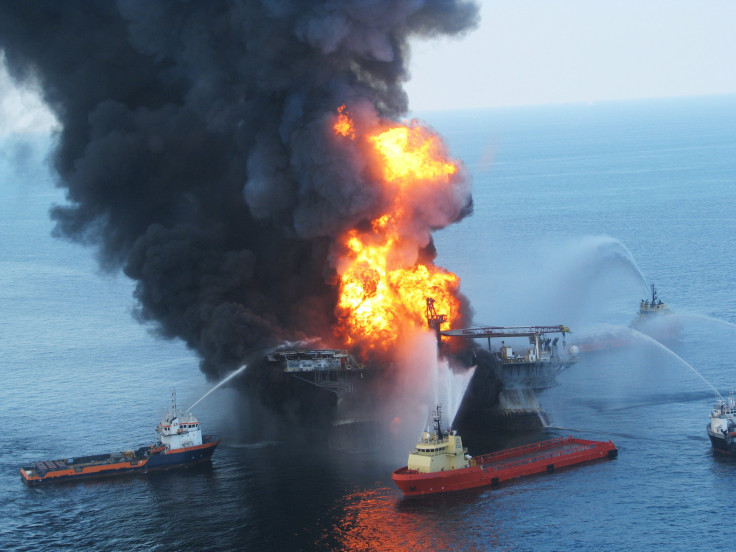BP: 'Business As Usual' For Offshore Oil Plans Despite Ruling That Company Was 'Grossly Negligent' In Deepwater Horizon Explosion

British energy giant BP PLC (NYSE:BP) won’t curb its plans to drill for offshore oil, even after a U.S. judge found it was “grossly negligent” in the 2010 Gulf of Mexico disaster, the company’s technology chief says. The ruling on Thursday could put BP on the line for up to $18 billion in new civil penalties for its role in the biggest offshore oil spill in American history.
“We are carrying on to invest in the plans that we had the day before yesterday,” David Eyton, BP’s group head of research and technology, said Friday on Bloomberg Television. “For the rest of us, really, it’s business as usual.”
He skirted questions on whether the $18 billion fine could hurt the economics of its offshore projects, which cost significantly more to operate than onshore fields. “You’re making an assumption there,” he told the Bloomberg reporter. “We don’t agree with the judgment that’s been made and we are appealing that judgment.”
The finding by U.S. District Court Judge Carl Barbier in New Orleans assigns most of the blame for the Deepwater Horizon oil rig explosion to BP. The incident killed 11 workers and caused millions of barrels of oil to gush into the Gulf, devastating coastal ecosystems and destroying fishing, tourism and recreation-related businesses.
Ruling that BP was “grossly” negligent -- not merely negligent -- quadruples the maximum Clean Water Act penalty that the company could be required to pay. The full size of the fines depends on how many barrels of oil are considered to have spilled.
BP shares fell by about 6 percent on Thursday, or roughly $8.5 billion, though they rebounded slightly on Friday.
The energy firm is the largest leaseholder in the deepwater U.S. Gulf of Mexico and produces fossil fuels from more than 15 fields in the region. BP’s most recent discoveries, the Gila, Kaskida and Tiber prospects, signal that the Gulf “will be a vital part of the world’s energy future for many years to come,” according to its website.
Transocean (NYSE:RIG), the owner of the Deepwater Horizon oil rig, indicated that Barbier’s ruling won’t hinder the U.S. offshore oil industry. The judge found Transocean held 30 percent of the blame for the explosion four years ago. Halliburton Co. (NYSE:HAL), a contractor involved in the incident, was apportioned 3 percent of the blame.
Barbier's decision is “a favorable and welcome ruling for Transocean, its employees and all offshore drilling contractors,” a spokeswoman for Transocean told Oil & Gas Journal on Thursday.
Louisianans affected by the spill said they are frustrated that oil companies are continuing to drill the Gulf of Mexico even as the Deepwater Horizon recovery drags on. BP has already spent $28 billion on damage claims and cleanup costs, but thousands of claimants have yet to receive any money. In some cases, BP had frozen payments to Gulf Coast companies while it sought to appeal the terms of a March 2012 claims settlement. The U.S. Supreme Court ruled in June that BP must stand by the agreement.
Chick Foret, a trial attorney in Metairie, Louisiana, who represents about $100 million in “business economic loss” claims, said that many of his clients have yet to be compensated. “It’s very disappointing that the federal government would allow BP to go back to business as usual,” Foret told International Business Times. “No one else is back to business as usual.”
© Copyright IBTimes 2024. All rights reserved.




















